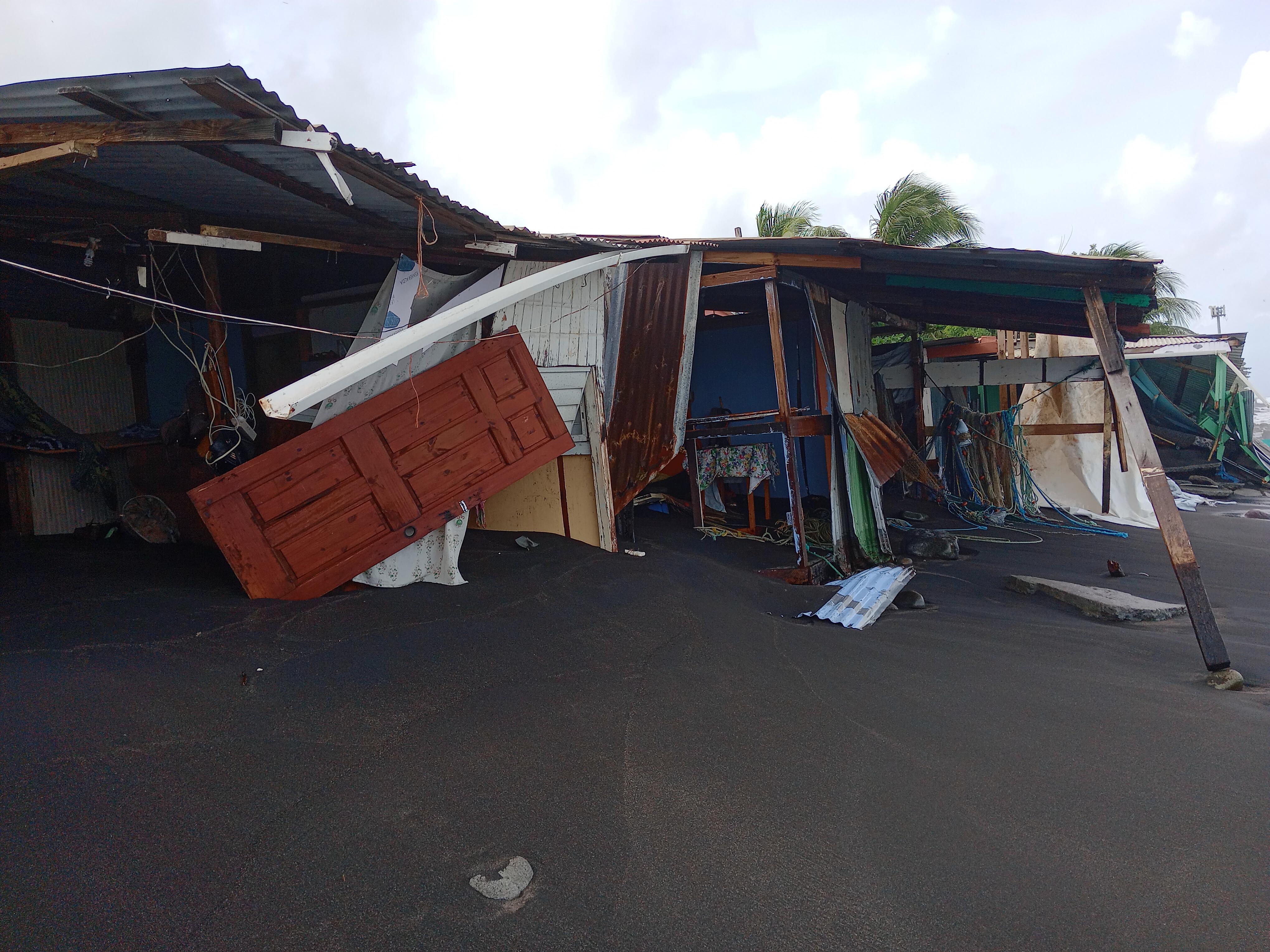
ROSEAU, Dominica (CMC) — Caribbean Community (Caricom) leaders will meet virtually on Tuesday to discuss the effects of the passage of Hurricane Beryl on Monday even as they renewed their criticism of the developed countries for their failure to adhere to promises made to help small island developing states (SIDS) deal with the impact of climate change.
Prime Minister Roosevelt Skerrit, speaking on the state-owned DBS radio Tuesday, said that the meeting is carded for 10:00 am and the leaders will discuss the situation, particularly in Grenada and St Vincent and the Grenadines where Beryl a Category 5 storm has been blamed for at least one death and causing widespread damage.
But Skerrit said that while Dominica suffered due to the passage of the first-named hurricane for the 2024 Atlantic Hurricane season, the damage is not comparable to what has been reported in Grenadines and Barbados.
“I could think we are okay,” he said, noting that this is the first hurricane on record so early in the hurricane season.
“Our lamentations and our advocacy to the developed world concerning climate change, the frequency and the ferocity of these storms are manifesting themselves,” Skerrit said, adding climate change is indeed a quinquennial threat to our survival”.
“We are just spending money in the Caribbean responding to disasters. Money that should be spent on development, health education, and infrastructure, we have to keep replacing infrastructure and if you keep replacing you will never get to the point you want to get.”
Skerrit said he has been in touch with the regional leaders and clearly what they “are saying to us is it could have been worse”.
“Thank God the main islands of St Vincent and Grenada were not impacted to the extent that was anticipated and of course Barbados was spared hurricane conditions,” he said.
“We have a meeting this morning at 10 to receive reports from CDEMA (Caribbean Disaster Emergency Management Agency) and also from the governments impacted so we can assess our collective response and assistance to those countries affected.
“But it is a reality we have to confront and our hearts and prayers go out to all of those citizens in the countries that have been impacted by the hurricane,” Skerrit said, noting that it would cost the countries a significant amount of funds to repair, homes and infrastructure damaged by the storm.
Skerrit said at a time when every single country has its unique challenges, he tries not to get “upset…or angry at the developed world, but this is unfair to us in this part of the world”.
He said commitments had been made in terms of compensation by the developed countries “to allow us to have access to resources to build resilience to climate change and we have shown in Dominica that you can employ the technology”.
“Of course, I will cost you, but if you had the resources, if you have the funds you can certainly invest with resilience in mind and place you in a better position to withstand and respond to the natural disasters.”
Skerrit said that the situation now is that regional countries are forced to spend scarce resources every month in dealing with climate change events, including droughts, and that “we are no longer waiting for every year to prepare…for the hurricane season”.
“I think it is dramatically unfair it’s unjust and we have to continue the fight because you cannot give up…my hope and prayer is that this fight cannot be seen to be only a government fight.
“It has to be the collective will of all the institutions, the universities in the Caribbean, the private sector in the Caribbean, student bodies …everybody must play their part in lending their fight to this fight,” Skerrit said.
Meanwhile, Bermuda Premier David Burt said that the British Overseas Territory is “concerned about the safety and wellbeing of our friends and neighbours in the region”.
“I have reached out to Dickon Mitchell, the prime minister of Grenada, to share that Bermuda is standing by to support Grenada in any way possible,” he added.

